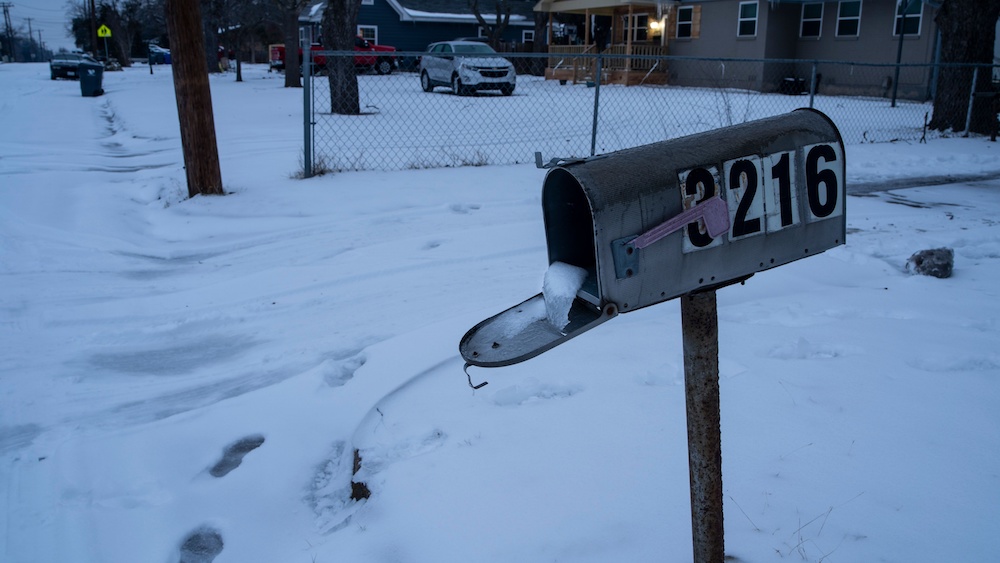If you’re interested in sharing your opinion on any cultural, political or personal topic, create an account here and check out our how-to post to learn more.
Opinions are the writer’s own and not those of Blavity's.
____
As a native Louisianan living in Los Angeles, I often ask fellow progressives about their impressions of the South. The responses range, but almost always include a reference to the region’s overwhelmingly conservative states and counties, as well as its regrettable past defined by Jim Crow and segregation.
This is all true, of course, but it doesn’t paint the full picture. The South features immense natural beauty, from rolling hills to rocky plateaus to vast semi-arid swaths of land. It has great food and caring people with boundless pride, unmatched fortitude and charming accents. It is complex, and it is nuanced.
The South is also large, with over 38% of the country’s population living among 16 states. Yet, when it comes to addressing the impacts of climate change, Southerners — many of whom are people of color — are often forgotten by politicians in Washington and ridiculed by public figures on social media.
Other regions of the country aren’t dismissed to the same degree. When Hurricane Sandy hit the northeast U.S. in 2012, calls for support and aid from the progressive community were swift, resolute and unified. (Congress later signed a $50.6 billion disaster aid bill.) When wildfires ravage California year after year, there was universal outrage from liberals over the absence of substantive action and solutions to the state’s long-standing drought and fire vulnerability. (California received $1.6 billion in federal aid in 2020, although there’s contention over whether these funds made it to actual wildfire victims.)
Compare that to the response from public figures and other non-verified accounts, which garnered thousands of likes, who mocked the state of Texas as it endured a devastating winter storm back in February. The overwhelming sentiment was why should we care about people who live in a state with “climate change denying” politicians like Senator Ted Cruz? I’m no fan of Senator Cruz or his policies, but the overt partisanship from those whom I’d consider my values to be closely aligned was both callous and misguided.
Meanwhile, just as Texans were stocking emergency supplies and desperately trying not to freeze in their own homes, Jackson, Mississippi, experienced similar devastation. A fierce winter storm compromised old sewage pipes, cutting off access to clean drinking water during a pandemic in a city where 80% of the population is Black. Schools closed and residents melted snow in trash cans just to flush their toilets. The response and outcry from many liberal leaders were minimal, but not surprising.
People of color already face an uphill battle on many fronts, and the disasters in Texas and Mississippi, along with similar events like Hurricanes Harvey (2017) and Katrina (2005), are evidence of how this plays out with real-world consequences. And though the victims in every one of these instances across The South received aid from FEMA, the relief functioned more like a bandage on a festering wound than a long-term fix.
However, there is hope.
Congress is currently in negotiation over President Joe Biden’s American Jobs Plan. If signed into law, this trillion-dollar-plus infrastructure bill would, among other things, address our nation’s vulnerable electric grid, improve access to affordable high-speed internet and invest in rebuilding crumbling roads, bridges and water systems. It provides crucial investments in climate-smart technologies to safeguard service providers and defend our nation’s most vulnerable communities. It creates sustainable solutions to better protect American citizens from climate change-related crises moving forward. In the process, it will also create millions of jobs, including improving quality of life and renewing the hope of prosperity for all Americans.
The United States is the wealthiest country in the world but ranks 13th globally when it comes to overall quality of infrastructure. This is a problem that can no longer be ignored, especially given that science tells us that natural disasters will worsen due to climate change, and data shows how communities of color will bear the brunt of this impact.
We are at a crucial impasse here. We cannot afford to allow hyper-politicization to have a detrimental impact on hard-working Americans just because their politics, or the politics of their state, isn’t perfect. Progressive activism should be grounded in basic human decency and empathy, centered on the most vulnerable, and should not stop at the Mason-Dixon Line. Pass the American Jobs Plan.
____
Darryl Coulon is the Grassroots Community Organizer for Zioness.
